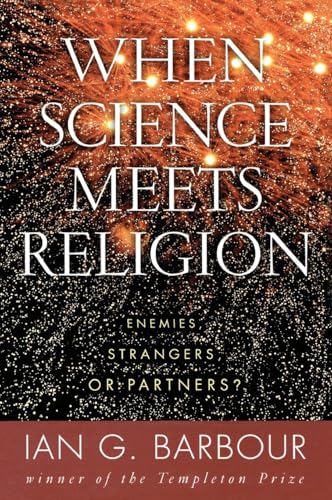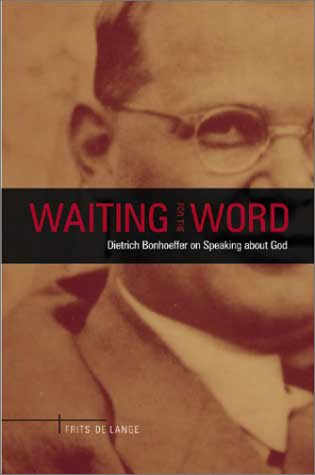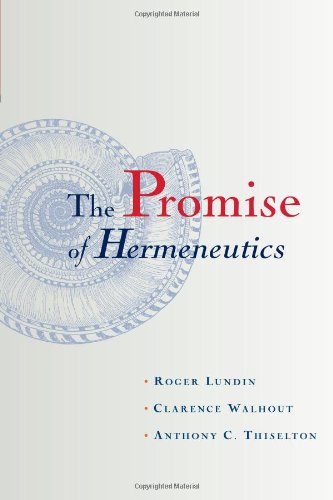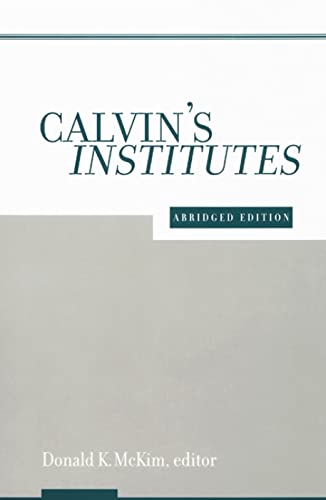Volume 27 - Issue 1
The Father with Two Sons: A Modern Reading of Luke 15
By Douglas J.W. MilneThe parables of Jesus are an important part of his teaching, and Luke has preserved a number of these popular and profound stories that are absent from the other Gospels. This is true of the parable of the Prodigal Son (Luke 15:11–32), a misnomer since the parable is about a father with two sons, both of whom are prodigal in their own ways. The parable might just as well be called, therefore, the parable of the Father with Two Sons. This is the perspective that we have chosen to follow in this presentation.
From the introductory words of Luke 15:(1–3) it is clear that Jesus intended to represent, through the various figures of the story, a number of different groups within the society of his day. The parable lends itself to a fresh interpretation within the cultural and spiritual space of the late 20th and early 21st century in the Western world, since God’s way of saving and the needs of human beings never change. Specifically, we argue that the story of the father and his two sons sums up and illumines in a remarkable way the ethos of postmodernism through the character, actions and ambitions of the younger son during the years of his prodigality; the state of the mainline churches through the character and attitudes of the older son; and the joy and celebration of the evangelical faith in community, through the actions and words of the father upon the return and transformation of the younger son.
The Younger Son in his Prodigality—the Postmodern Condition
Debate continues about defining postmodernity—the prevailing mood and ethos of the third millenium—whether it is a culture or a philosophy, when it began, its relation to modernity, and so on. Here we may simply observe that behind and within every culture there lies, concealed, a number of spiritual and moral assumptions and values that shape the cultural milieu and make it what it is and becomes. In the person and actions of the younger son we gain an insight into the postmodern condition.
First: When the younger son addresses his father and says, ‘Give me my share of the inheritance!’ (12), he is acting from a thoroughly selfish motive, reminiscent of the relativist temper that inspires the postmodern spirit. ‘Relativism—choosing our own individual values without much reference to others—is a current philosophy. Unfortunately, it is a philosophy often marked by intense selfishness.’1 Life becomes an open road inviting us to travel it as we choose, with whom we choose, and where we choose, for whatever reason we choose. Life is free, life is good.
Second: The younger son sets out to travel to a far country in quest of personal freedom and fulfilment. In his mind and imagination the far country symbolises his youthful desires and hopes for a life lived without the restraints of his father’s home, its responsibilities and family loyalties.
The relationship of postmodernity to modernity is hotly disputed, whether the former is a complete break from the latter, or actually only a continuity of it. At any rate, postmodernity could not exist without the previous culture of modernity with which to define itself. So, in spite of its often strident discourse about the inconsistencies and evils of modernity and its scientific, social and religious utopias, postmodernity lives nowhere more clearly off the capital of modernity, than its own commitment to the absolute freedom of the individual. In this way the children of postmodernity, no less than their parents and grandparents under modernity, believe in an incontestable principle of personal liberty.
Third: The enjoyment of personal freedom could only be attained in fleeing from the father’s house with all that it stood for in terms of tradition, authority, objective values and socio-moral responsibilities to his father and his brother. So the younger son’s drive for freedom meant a deliberate renunciation of a set of values, endemic to his existence until that time.
Postmodernism is the most recent movement of radical change in the western world, dominating the latter part of the 20th century and spilling over into the 21st. Its evolution continues to take new forms and find new outlets in media, the entertainment world, social and moral engineering, as a culture founded on modern technology and the new capitalism. Above all, postmodernism is a critical renunciation of traditional authorities like Christianity, classical literature, objective reason and morality. In place of these failed and faded idols, the far country of postmodernity is a land of private experimentation, subjective preferences, a deconstructive approach to rational discourse, a hermeneutic of suspicion, ending in a non-commitment to anything, except one’s own chosen options and desires. There are no absolutes in the far country of postmodernity, except the absolute of postmodern beliefs and values, claimed as relative and beyond criticism, but by a subtle sleight of hand, actually operating with all the authority and finality of modernity’s axiom of ultimate freedom.
Fourth: In the far country the younger son finds the opportunity to indulge his passions in a lifestyle of prodigality and promiscuity. Luke explicitly tells us that this was so (13), but even without this piece of narrative information, we hear the same evidence from the older brother later in the story (30). Without the secure surroundings of his father’s house, embodied every day in the father’s living presence, the younger son knew no restraint and burned out his life, resources and opportunities in carefree living.
It should come as no surprise that the period of the rise and hegemony of postmodernity has also become one of unprecendented lawlessness, crime in all forms, human brutality, sexual promiscuity, and the breaking down of human, social relationships at every level. With the loss of Christian beliefs and values from the public square, the restraining firewalls of belief in a moral universe, objective moral authorities, conscience and the judgements of history, have disappeared as well, leaving behind a dangerous vacuum that other forces, of a destructive tendency, are already filling. The effects of this moral and spiritual collapse even impact on those of a postmodern persuasion who delight in the liberties of the postmodern world on the one hand, yet suffer the consequences of the nihilistic lifestyle of their own choosing.
Fifth: The far country, that promised so much in the beginning and beckoned so seductively at the outset of the journey, turns out to be a land of faded dreams and spiritual hunger. Times change and the land of plenty becomes the land of want. Famine strikes, wealth plummets, jobs became scarce. Days of abundant living and socialising turn into nights of loneliness and personal bankruptcy. The only employment the younger son could find was looking after pigs, unclean animals in Jewish dietary and social law. That he fulfilled this work on minimal wages is evidenced by his hunger for the food that the pigs were eating. In the context of the parable the hunger of the younger son’s body is symbolical of his inner hunger of spirit for something to sustain his human being and to rescue his life from its downward spiral into oblivion and destruction.
Postmodernity represents the nadir of the western cultural experiment, inherited from the Enlightenment of the 18th century, developed in turn from the Renaissance of the 14th, itself a rediscovery of the classical pagan culture of Greece and Rome. In every one of these movements there is a flourishing of the human spirit with a remarkable display of its capabilities in the arts, science, and world conquest, yet always ending in the inevitable human tragedy of a communal loss of direction, a deepened sense of the ephemeral nature of all human achievements, and a fresh outcry for meaning and purpose beyond the temporal and physical. Morris West, the Australian Roman Catholic novelist, depicts this end condition of the human spirit, in a soliloquy of one of his backslidden characters.
I was lost a long time, without knowing it. Without the Faith, one is free, and that is a pleasant feeling at first. There are no questions of conscience, no constraints, except the constraints of custom, convention, and the law, and these are flexible enough for most purposes. It is only later that the terror comes. One is free—but free in chaos, in an unexplained and unexplainable world. One is free in a desert, from which there is no retreat but inward, towards the hollow core of oneself. There is nothing to build on but the small rock of one’s own pride, and this is nothing, based on nothing … I think, therefore I am. But what am I? An accident of disorder, going nowhere …2
Such is the ultimate destiny of postmodernity.
The Older Son—the Harvest of Liberalism
The second son only appears in the second half of the parable where he takes over from his younger brother as the leading figure. He appears immediately after his brother’s homecoming and his father’s generous welcome to his erring son. Like his brother the elder son appears in a negative light, though for very different reasons, and fails to redeem himself through personal repentance and reconciliation with his father and brother. At least, there is no account of a later conversion. Although his personal circumstances differ from those of his brother, his story is more tragic just because he fails to see his plight and to face up to it. There is much here that resonates with the attitudes and beliefs of members and adherents of the mainline churches throughout the 20th century, the high noon of theological Liberalism across Western Christendom.
First: The older son was in the field working, as he had been doing for the whole time of his brother’s absence (25). He later relates this to his father as a point of criticism and complaint against his father (29). He was extremely self-conscious of his personal loyalty to his father in performing the same duties day after day, a proud record of faithfulness in service over many years.
Many in the mainline churches grew up under the theology of Liberalism which, influenced by the philosophy of Immanuel Kant with its centre in the autonomous self and the moral will, desacralised the Gospel of the New Testament and historic orthodoxy by stripping it of its inherent supernaturalism, and presented Christianity rather as a life of goodwill and practical helpfulness to others, than as a personal change of heart and a life rooted in communion with the triune God through Christ and the cross. As a result many in the ranks of the mainline churches have embraced a counterfeit of the one true Gospel of God’s grace, replacing it with a commitment to self-improvement and good works.
A great deal of faithful service has been conducted by many of the older generations in the various mainline denominations during their lifetime of membership in the churches, a proud chronicle of service taking many forms, from looking after the grounds of the church, teaching in the Sunday School, performing the duties of the eldership, being actively involved in the women’s meeting, to providing catering for church functions. Compared with that record many of the younger generation of Christian believers could not compete, and from it they could also learn much. On the other hand, in many cases, this service record seems to have been done out of a sense of duty or loyalty to the Church rather than to Christ, that is, from a sense of the rightness of service for its own sake, rather than as the heart-felt expression of a personal relationship to the triune God.
Second: The elder brother was angry and non-cooperative on hearing of the return of his younger brother (28). Given his pedestrian approach to serving his father, and the many years that he was conscious of labouring for him, the older boy was naturally displeased with the generosity of his father towards a prodigal son. He could not understand why his father would enthuse over his brother’s return, while he had served with him so loyally all those years, without a similar jubilation. He refused to join in the festivities, choosing rather to remain stubbornly outside in his field, in sullen mood.
In the same way, many of those who have served in the mainline churches over the years have shown themselves to be actively antagonistic to changes in the life and habits of the churches, wherever these have been due to an evangelical faith and evangelistic fervour. The gospel celebrates the goodness and generosity of God, beyond all expectation and human deserving, towards the world in its selfishness, waywardness and unthankfulness towards him as rightful Creator and Lord. Whereas the arrival of this message and its messengers ought to have been the occasion for joyful celebration, instead it has become, in many places, a point of friction and division, leading in some cases to the termination of the work. Like the elder son, people become entrenched in their opposition to new measures and the whole evangelical programme that underpins them. They would rather die in their ecclesiastical traditions than embrace the changes that the Gospel brings.
Third: The older son was suffering from a mixture of self-righteousness and self-pity (29). When pressed, he fell back in defence of his record of years of loyal service, his impeccable conduct towards his father, and his father’s failure to favour him in the way he was now doing towards a son who had broken all the rules and brought him nothing but pain and shame. From this reply, we can see into the heart of the older son, and come to the conclusion that through all his years of service he has related to his father on the basis of authority and law, not of love and liberty. He had the mind of a slave and not a son. He nurtured a grudge against his father, which he now articulates after all these years. He has been silently critical of his father while pretending to serve him and obey him. His service has been a matter of duty, never a joy.
Duty lay at the heart of Kant’s legalistic morality and the religion that it generated in European Protestantism, from around the middle of the 19th century and well into the 20th. Liberalism was a system of salvation by moral character and good works, the very kind of religious faith and practice that Paul exposes in his letter to the Galatians and that called forth the Reformation and every genuine religious revival since. Within the mainline denominations the harvest of Liberalism continues to be reaped in an entrenched spirit of self-justification among the many who have embraced its tenets from childhood, from Sunday school teaching and a lifetime of humanistic preaching, without being conscious of the religious toxins they were imbibing into their spiritual lives. This self-righteous spirit still displays itself in outrage when confronted with the message of God’s sovereign grace in Christ, that deprives us of all good works leading to salvation, and calls us to trust in him alone for our full acceptance with God, both now and forever.
Fourth: The elder son lacked the generosity and large-heartedness of his father though he had lived and worked with him all his life (28, 30). Instead of rejoicing with the family he withheld himself in self-righteous anger. It was only the father who looked for his brother’s return, being moved with profound pity for the penniless penitent, and ran to greet him (20). The elder brother knew nothing of this all-embracing and all-forgiving love. He was shut up in himself and closed to the needs and remorse of others. His whole existence was as thoroughly self-absorbed as had been his brother’s in the darkest days of his prodigality.
In the same way theological Liberalism has generated little or no interest in outreach evangelism, to try to win the lost generations outside the churches, at home and overseas. Traditionally there was a good deal of talk in these church circles about the gospel of the love of God for all mankind, but a total breakdown at the point where we might have looked for a translation of that theology into action, in the way of caring evangelism or earnest prayer for the revival of apostolic Christianity in our communities and across the nations. On the contrary, on receipt of the news of conversions of people out of secular paganism or of efforts to reach those in our communities, lost in a web of sinful living, the reaction is frequently one of indifference, disapproval or deep suspicion.
Fifth: The elder son disowned his brother, holding him in relationship only to the father (30). He refers to him to his father as ‘this son of yours’ rather than as ‘this brother of mine’. He refused to be associated with his brother’s life of lawlessness and rebellion, choosing to see himself as belonging to those who keep the law and live respectably. He claimed to have never broken any of his father’s orders (29), and so despised his brother and disowned him.
Liberalism has produced a similar set of mental and spiritual blocks in its time. In place of a generous welcome to those individuals who have returned to their Father’s house, a disapproving attitude has often sprung up, askance at the idea of visitors or non-denominational people disrupting the even tenor of their ways. It is as though there are two kinds of people, sinners in need of God’s forgiveness because they have failed life’s test, and the respectable who have lived a moral life and so enjoy a natural claim on God’s love and a place in the heavenly kingdom. But this is the mindset of Pharisaism that Jesus was so anxious to expose and explode (Luke 16:15), and against which this part of the parable was told (Luke 15:1–3).
Sixth: The elder son failed to avail himself of the father’s presence and presents though he lived within reach of these all his life (32). This is the final word of the parable and the final judgement on the elder brother. Living surrounded by untold wealth in the form of the father’s company and all his possessions, the elder brother had never translated his opportunities into realities. Though potentially wealthy he was actually a pauper through his own prejudices and disbelief in his father’s love. So near and yet so far, he had created a far country in his own mind where he lived out his life, spiritually removed from any real enjoyment of his father’s company. He was as far away from his father, as he was from his brother.
In the same way, many have grown up and lived out their lives religiously and physically near to the churches of Christendom, yet remained strangers in their hearts to the saving love of God in Christ, the risen and living head of the churches. Religion may be a form without real substance in the heart and conscience. Such was the religion of the Pharisees who took pride in the externals of their ritual and ceremonies but did not know God for themselves as a reconciled Father and friend, according to the terms of the new covenant of his grace (Heb. 8:11). Only an evangelical encounter with the Father of mercies and the God of all grace, rooted in a deeply felt sense of personal unworthiness and sinfulness, can rectify this state of affairs, by exchanging externals for internals and giving priority to the religion of the heart (Luke 11:39–41). People may be close to the kingdom of heaven without ever taking possession. Theirs is the most tragic story of all, more than those who were far away from God through many years of their lives, before they found the entrance point. Heaven rejoices over any sinner who repents, no matter who that sinner may be (Luke 15:7, 10), but grieves and weeps over sinners who think they are righteous and have no need of repentance.
The Younger Son Restored—the Future of Evangelicalism
First: The younger son experienced a crisis of self-identity that led to a radical change (17). In a moment of self-revelation the son came to himself, which means that for the first time since he had left his father’s house, he began to examine himself critically for the decisions he had made and the way he had been living. Out of a cycle of suffering and reversal of fortunes he was constrained to conduct this inner review, resulting in the major turning-point of his life.
‘Know thyself’ was the summation of Socratic wisdom in the ancient world, but only the word of God in the gospel of his Son can penetrate the barricades of pride and self-deception that all of us erect against the truth about ourselves. The gospel is good news only after having delivered us the bad news about ourselves as the ones who have erred, rebelled and persisted in a style of life away from our only God and King. Confronting ourselves honestly in the full light of God’s justice and truth in the law and in Jesus is the first step back to spiritual health and moral recovery.
Second: The younger son remembered his father, his home and conditions there (17). In the crisis of his life the younger son cast his mind back to his beginnings, to childhood years, to happy memories and good times with his father and his household. Now he could see what a fool he had been to leave his father and his home at all. That was the point where his life had gone wrong, and that was the point to which he must return. Thoughts of his father’s house brought back images of wellbeing, love, security, in fact all the experiences and pleasures that he had forfeited for the far country. Even the hired servants were contented and happy in the father’s house, yet he was a son with nothing to eat and nowhere to go.
As Augustine found and taught in the 5th century, the human being finds its true resting place and home in God, the God who has made us in his image, and who, even in our fallenness and estrangement, preserves and nurtures our sense of belonging in him. When the time of his grace arrives the Lord awakens within us, like a memory long suppressed but now retrieved, a sure belief in God, as our beginning and our ending. This conviction may arise from the early years of religious upbringing in church or home, or it may arise as a part of that natural religion with which all of us are equipped and from which none of us can ever escape (Rom. 1:19, 20; 2:14–15).
Third: The younger son resolved to go back to his father and speak with him (18). Finally he had come to accept that he had offended against God and against his father. In fact his sin against God was seen in his rebellion against his father, since his father was given him in God’s place to make known to him God’s wisdom, goodness and justice. The prodigal even rehearses the speech that he will make when he meets with his father again. He is quite willing now to incriminate himself with the self-inditing words, ‘I have sinned’.
Awareness of personal irresponsibility in the conduct of one’s life in particular ways, and an inner bias against God and his commands, lies at the heart of religious conversion. Many are the excuses that we invent to cover our sinful behaviour against God and others, but the litmus test of authentic faith is a readiness to take responsibility for our own past choices and failures. Conversion means an honest dealing with God as our primary Relation, our personal Creator, Judge and Father.
Fourth: The younger son declares his unworthiness to remain a son, asking instead to be received as a servant of his father (19). In an ironic twist to his life story the younger son repeats his renunciation of sonship, though this time for the worthy reasons of remorse and reconciliation.
The true believer in God is marked by a deeply contrite spirit, not in unhealthy self-hating as Freud would have it, but in a healthy realism about our own real failures and accountability. We can blame not our stars, nor our genes, but ourselves for the mess of our wayward lives. Yet along with this new self-realism there runs a belief in God’s mercies, that he is the kind of God who receives those who are realistic and humbled about themselves and entrust themselves to his grace alone to rescue them. Like the returning son, we can believe in the goodness of God, who, though he may reject us as a son, may yet receive as a servant. But the outcome that follows is far in excess of such minimalist believing in hope.
Fifth: The younger son was reconciled with his father in a lavish display of love (20). To crown his personal remorse for former wrongs an emotional reunion with his father takes place on the open road to home. Through all the years of his son’s silence and neglect the father kept watching for his son’s return. When the day he had dreamt of came, the father spotted his son as he crested the horizon and ran to embrace him and receive him home.
The gospel proclaims a definitive act of reconciliation effected by God towards the world, in the personal sufferings, obedience and death of his Son, Jesus Christ, when he offered himself as the penal sacrifice for the sins of his people, that we might freely inherit the blessings of the Father’s kingdom of grace and glory (2 Cor. 5:18–21). The gospel message consists of information of this singular act of God in time-space, along with the summons to every person who hears it to make their own peace with God on the strength of Jesus’ life and death for our sins.
‘The chief and foremost desire of every one who professes to have any religion, should be to obtain reconciliation. Till this is done, nothing is done. We have got nothing worth having in Christianity, until we have peace with God.’3
Sixth: The younger son is reinstated as the father’s son and made the centre of his affection and attention (23). In fact, his homecoming is the occasion for rediscovering his relationship to his father, and enjoying it in a wholly new way. It was as if he was getting to know his father for the very first time, and enjoying what it meant to be his son.
Paul’s writings make much of the filial status and relationship that believers in God, through Christ, attain to the moment they believe (Rom. 8:14–17, Gal. 4:4–6). Not only are we pardoned at law, through the representative obedience and suffering of Christ, but through our union with him by faith, we are received as extra children at the Father’s hearth and home, the brothers and sisters of Jesus, whom he loves like his only Son (Rom. 8:28–30). He lavishes his love and care on us, because we are precious to him as those he has predestined for adoption.
Seventh: The younger son celebrated with his father, his relations and his friends (23, 24). He became part of a community of love, mutuality and service around the father and his generous love. No longer was he friendless and alone, but surrounded now by kindred hearts and loyal friends. His return was the occasion for a family gathering, the past was erased and forgiven, and the future was bright with the prospect of his father’s presence and gifts.
The evangelical tradition has always emphasised the church as a community of kindred persons whose stories are entwined in the shared experience and enjoyment of God’s fatherly kindness through Jesus Christ and his Spirit. The local church is the primary locale of joyful faith and genuine koinonia with God and his people, of communal worship and caring relationships, sacrificial service, hospitality and outreach. The evangelical churches should be like family centres for all God’s children, whether the prodigals of postmodernity finding their way out of their selfishness and subjectivities, or the legalistic moralists of religious Liberalism fleeing their erstwhile fallacies and delusions of importance. Only as evangelicalism preserves its historical focus on the living God of abounding grace in Jesus Christ, and lives the gospel in moral transparency and spiritual vitality, will it realise its calling to be the light and salt the secular world, a haven and a home for all God’s erring and penitent children. Only then will its future be assured in the rapidly changing and complex world of the 21st century.
In a perceptive essay C.S. Lewis observes that there are three kinds of people.4 There are ‘those who live simply for their own sake and pleasure’, like the earlier prodigal son. In the second class are ‘those who acknowledge some other claim upon them’. This is the largest group to which most people belong, but also the most unhappy and restless, because like the elder son. they are living by conscience or by some other self-imposed moral imperative which can never be fulfilled. Thirdly, there are ‘those who can say like St Paul that for them “to live is Christ” ’. Like the reformed and reborn prodigal ‘[T]he old egoistic will has been turned round, reconditioned, and made into a new thing’. To which class do we belong?
1 The Weekend Australian, 23–24 December 2000, 14.
2 Morris West, The Devil’s Advocate (Fontana Books, 1977), 262.
3 J.C. Ryle, Expository Thoughts on the Gospels, Luke, volume two (Banner of Truth Trust, 1986), 104.
4 C.S. Lewis, Present Concerns (Fount Paperbacks, 1986), 21–22.
Douglas J.W. Milne
Vice-Principal of Presbyterian Theological College, Melbourne






